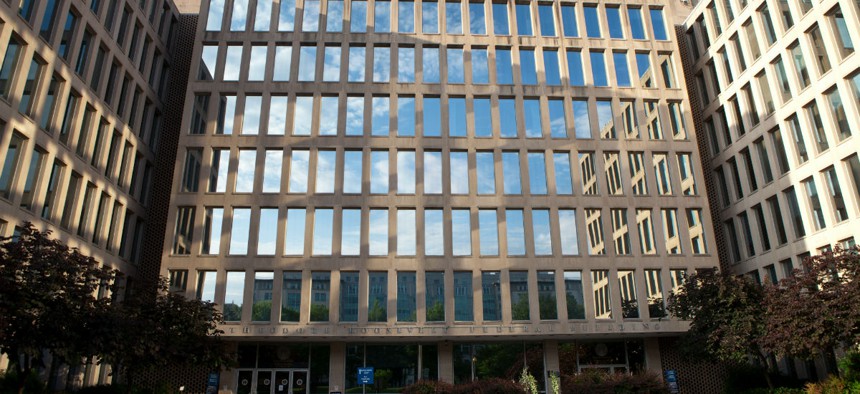Moving Security Clearance Processing Out of OPM Won't Fix the Backlog
Although the expected order to move all background checks to the Pentagon will prevent duplicative efforts, positive effects may be limited.
Observers on Tuesday applauded the news that President Trump plans to sign an executive order moving the whole of the federal government's security clearance process to the Defense Department, although they said much still needs to be done to address problems with background investigations.
Nextgov reported that the whole of the National Background Investigations Bureau, including its workload, offices and personnel, will transfer from the Office of Personnel Management to the Pentagon. Last year, Congress included in the National Defense Authorization Act a provision moving background investigations for candidates for Defense Department posts—about 70 percent of NBIB’s workload—to the Defense Department.
NBIB Director Charles Phalen supports the move, arguing that bifurcating the security clearance process would have been “debilitating.” And observers, like Lindy Kyzer, senior editor at ClearanceJobs.com, a website focused on jobs requiring federal security clearances, agree.
“Once Congress decided to move Department of Defense background investigations in the NDAA, it did not make sense for there to be a skeleton organization at NBIB doing the [small number of] remaining investigations,” Kyzer said. “So the advantage is that, theoretically, you’re consolidating the move and keeping it under one umbrella.”
But the decision likely will not fix any of the longstanding problems with the security clearance process. Lawmakers and government watchdogs alike have bemoaned backlogs in the hundreds of thousands for job candidates awaiting background investigations before they can be hired to key jobs.
“Moving it won’t address any of those issues,” Kyzer said. “This is designed to maybe prevent duplicate offices and efforts, but it’s not a fundamental reform effort, and it won’t do anything to reduce the size of the backlog. We will still have to wait for Congress to enact separate legislation that deals with those issues.”
Kyzer said that if the White House did not move all background investigations at once, the federal government could have seen a labor shortage that actually exacerbated the existing clearance backlog.
“If DSS and NBIB were working in tandem, they would be competing for the same talent pools, and the big issue would have been that there are so many background investigators to hire,” she said. “There’s only so many people who can do it. If they had moved forward just with what was in the NDAA, you’d have a lot of staffing issues trying to run both programs.”
As the plan moves forward, there will likely be some growing pains, mostly at the field office level, Kyzer said.
“The organization has been under OPM for more than a decade, so there are going to be some redundancies between what [the Defense Security Services] and NBIB are doing,” she said. “Especially at the field office level, how the two organizations are rolled together, which offices will go away . . . to me, at the field office level is an area of complication that will just exist, whereas moving the management structure of NBIB to DSS is not as complicated.”




